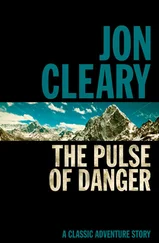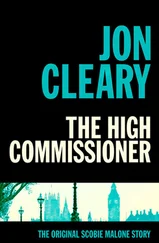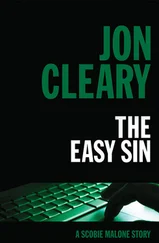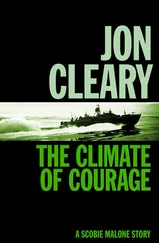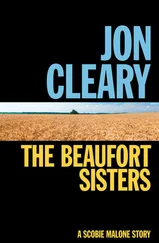Jon Cleary - Dragons at the Party
Здесь есть возможность читать онлайн «Jon Cleary - Dragons at the Party» — ознакомительный отрывок электронной книги совершенно бесплатно, а после прочтения отрывка купить полную версию. В некоторых случаях можно слушать аудио, скачать через торрент в формате fb2 и присутствует краткое содержание. Жанр: unrecognised, на английском языке. Описание произведения, (предисловие) а так же отзывы посетителей доступны на портале библиотеки ЛибКат.
- Название:Dragons at the Party
- Автор:
- Жанр:
- Год:неизвестен
- ISBN:нет данных
- Рейтинг книги:4 / 5. Голосов: 1
-
Избранное:Добавить в избранное
- Отзывы:
-
Ваша оценка:
- 80
- 1
- 2
- 3
- 4
- 5
Dragons at the Party: краткое содержание, описание и аннотация
Предлагаем к чтению аннотацию, описание, краткое содержание или предисловие (зависит от того, что написал сам автор книги «Dragons at the Party»). Если вы не нашли необходимую информацию о книге — напишите в комментариях, мы постараемся отыскать её.
Dragons at the Party — читать онлайн ознакомительный отрывок
Ниже представлен текст книги, разбитый по страницам. Система сохранения места последней прочитанной страницы, позволяет с удобством читать онлайн бесплатно книгу «Dragons at the Party», без необходимости каждый раз заново искать на чём Вы остановились. Поставьте закладку, и сможете в любой момент перейти на страницу, на которой закончили чтение.
Интервал:
Закладка:
‘He’s taken the place of that Venezuelan guy,’ said Clements. ‘That Carlos. Whatever happened to him?’
‘Special Branch said the rumour is that the Libyans got rid of him. Maybe we should ring up Gaddafi and ask him to get rid of this bloke, too.’
‘You reckon he’ll try another shot at Timori?’
‘Depends how much he’s been paid. And who’s paying him.’
Malone looked out the window, over Hyde Park and down to the northern end where Macquarie Street ran into it. That street was where the State politicians conducted their small wars; but there was no terrorism. There might be vitriolic and vulgar abuse that made other parliaments look like church meetings, but there were no assassin’s bullets. Now Timori, the unwanted guest, had, even if involuntarily, brought that danger to Sydney.
‘Did The Dutchman have anything to say this morning?’ So far Malone hadn’t looked at this morning’s newspapers. He was not a radio listener and he usually got home too late to look at the evening TV news. When he got the news it was usually cold and in print, but he had found that the world still didn’t get too far ahead of him. There was something comforting in being a little way behind it, as if the news had somehow been softened by the time it got to him.
‘His usual garble. I dunno whether he’s for or against Timori.’
‘If Phil Norval’s for him, The Dutchman will be against him.’
The Dutchman was Hans Vanderberg, the State Premier, an immigrant who had come to Australia right after World War Two, had become a trade union official, joined the Labour Party, got on well with the Irish Catholics who ran it, taken on some of their characteristics and ten years ago had become Leader of the Party and Premier. He was famous for his garbled speeches and his double-Dutch (or was it Irish?) logic; but he was the best politician in the country and he and everyone else knew it. He was also a magnificent hater and he hated no one more than Prime Minister Philip Norval.
Malone looked at his watch. ‘We’d better get over to Kirribilli. What time do Presidents have breakfast?’
‘I know what time I had mine. Six o’bloody clock.’
Malone grinned; he always liked working with Russ Clements. ‘You’d better get used to it, sport. This looks like it’s going to be a round-the-clock job.’
‘How does Lisa feel about you working on the holiday weekend?’
‘She wouldn’t speak to me this morning. Neither would the kids. I’d promised to bring them all in to The Rocks to see the celebrations.’
‘I was going to the races. I’ve got two hot tips for today.’
‘Put them on SP. Where do you get your tips?’
‘From a coupla SP bookies I used to raid when I was on the Gambling Squad.’
‘How much are you ahead this year so far?’
‘A thousand bucks and it’s only January twenty-third. They’ll be holding a Royal Commission into me if it keeps up.’
‘What do you do with all your dough?’ Clements always looked as if he didn’t have his bus fare.
‘Some day I’m gunna have an apartment in that block down at the Quay, right there above the ferries. People will point the finger at me and say I made it outa graft, but I won’t give a stuff. I’ll pee on ’em from a great height and if some of it lands on some crims I’ve known, so much the better.’
Malone grinned, wished him well, stood up and led the way out of Homicide. The division was located on the sixth floor of a commercial building that the police department shared with other government departments, most of them minor. Security in this commercial building, because of the shared space with other departments going about their mundane business, was minimal. Malone sometimes wondered what would happen if some madman, bent on homicide towards Homicide, got loose in the building.
They drove through the bedecked streets of the city. The citizens held high hopes for the coming year; it was no use living in the past, even though they were celebrating it. They had just come through the worst recession in years; they had been told to tighten their belts, torture for the beer-bellied males of the population, but for this week they were letting out the notches. There is nothing like a carnival for helping one forget one’s debts: banks are always closed on Carnival Day.
They drove over the Bridge, above the harbour already suffering a traffic-jam of yachts and cruisers and wind-surfers, and turned off into the tree-lined streets of Kirribilli. This small enclave on the north shore of the harbour, directly opposite the Opera House and the downtown skyscrapers, had had a chequered history. In the nineteenth century it had been the home of the wool merchants. In the 1920s middle-class apartments had been built on the waterfront. After World War Two it had gone downhill till in the late sixties it had become a nest for hippies and junkies. Then real estate agents, those latterday pioneers, had rediscovered it. Now it provided pieds-à-terre for retired millionaires, luxury apartments for some prominent businessmen, small town houses for young executives and their families and, almost as a gesture of social conscience, two or three rooming houses for those who couldn’t afford the prices of the other accommodation. Kirribilli, an Aboriginal word meaning ‘a good place to fish’, also provided Sydney havens for the Governor-General, the Prime Minister and ASIO, the national intelligence organization. It was natural that the local elements, including those in the rooming houses, thought of themselves as exclusive.
The dead end street leading to Kirribilli House was blocked off by police barriers. The television and radio trucks and cars were parked on the footpaths of the narrow street. The anti-Timori demonstrators were jammed solid against the barriers; there was a sprinkling of Asians amongst them, but the majority were the regulars that Malone recognized from other demonstrations; in the past twenty years protest had become a participation sport. Standing behind the demonstrators, as if separated by some invisible social barrier, was a curious crowd of locals, some of them looking disturbed, as if already worrying about falling real estate barriers. Murder and political demos did nothing for the exclusivity of an area.
Standing just inside the gates of Kirribilli House was a group of thirty or forty Paluccans, men, women and children. They were all well dressed, some in Western clothes, others in Eastern; they looked nothing like the photos Malone had seen of those other refugees of recent years, the Vietnamese boat people. Yet for all their air of affluence they looked frightened and lost.
‘They’re probably the lot who came in with the Timoris on the RAAF planes,’ Clements said. ‘They’ve had them out at one of the migrant hostels.’
‘Better question them, find out if any of them were missing last night. Get Andy Graham and Joe Raudonikis to talk to them.’ Then Malone noticed the three Commonwealth cars parked in the driveway. ‘Someone’s here from Canberra.’
Someone was: the Prime Minister himself. As Malone and Clements walked towards the house, Philip Norval, backed by half a dozen staff and security men, came out of the front door with Police Commissioner John Leeds.
The Commissioner, as usual, was impeccably dressed; he was the neatest man Malone had ever met. He was not in uniform, probably as a concession to the holiday weekend, but was in a beautifully cut blazer, slacks, white shirt and police tie. Why do I always feel like a slob when I meet him? Malone thought. Then he looked out of the corner of his eye at Clements, a real slob, and felt better.
‘Ah, Inspector Malone.’ Leeds stopped with a friendly half-smile. He nodded at Clements, but he was not a man to go right down the ranks with his greetings. He turned to the Prime Minister. ‘Inspector Malone is in charge of the investigation, sir.’
Читать дальшеИнтервал:
Закладка:
Похожие книги на «Dragons at the Party»
Представляем Вашему вниманию похожие книги на «Dragons at the Party» списком для выбора. Мы отобрали схожую по названию и смыслу литературу в надежде предоставить читателям больше вариантов отыскать новые, интересные, ещё непрочитанные произведения.
Обсуждение, отзывы о книге «Dragons at the Party» и просто собственные мнения читателей. Оставьте ваши комментарии, напишите, что Вы думаете о произведении, его смысле или главных героях. Укажите что конкретно понравилось, а что нет, и почему Вы так считаете.





